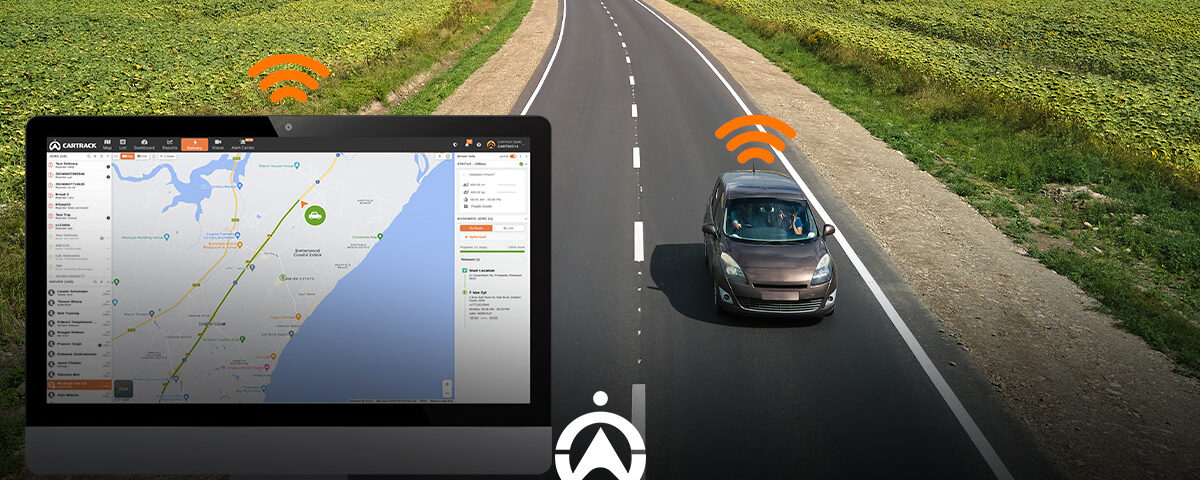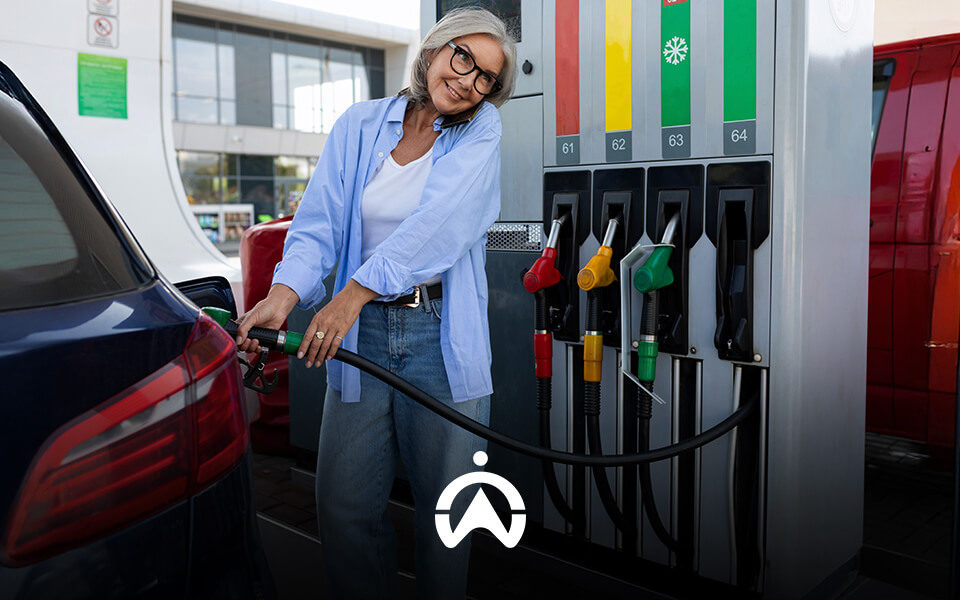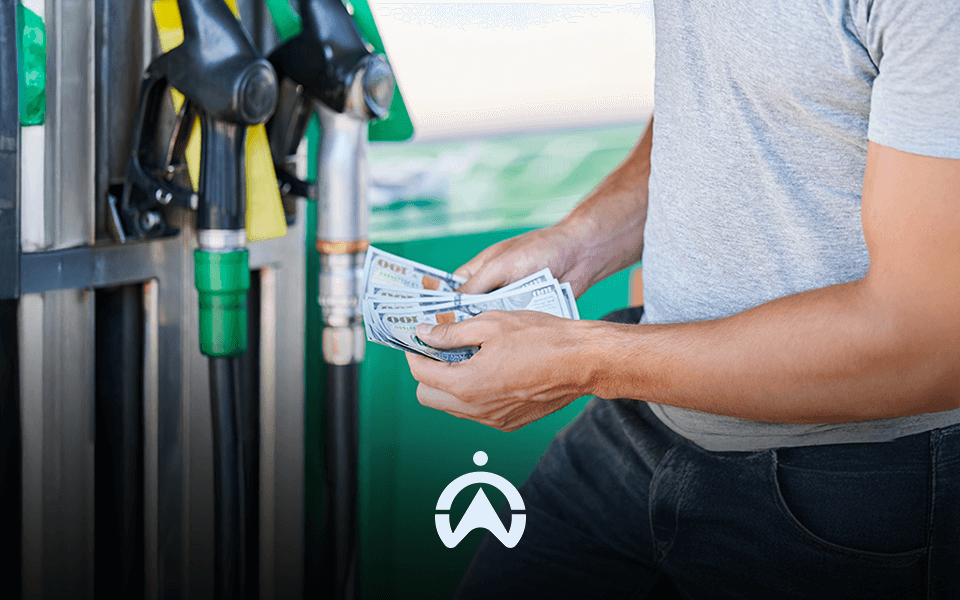The Role of Route Optimisation in Reducing Fuel Misuse
Fuel costs have been a continuous problem for South African businesses. After yet another petrol price increase on the 6 November 2024, businesses are feeling the strain. That is why businesses are encouraged to implement measures to reduce fuel misusage in their fleet operations.
Every litre that is wasted eats at a company’s operational budget. This is where route optimisation comes into play. By taking advantage of Cartrack’s route optimisation systems, businesses can significantly reduce fuel misuse and its negative consequences.
Let’s take a closer look at how route optimisation can help businesses save on costs and contribute toward a more sustainable future.
What is route optimisation?
Route optimisation is the process used by fleet managers to plan delivery routes. In their efforts to build an efficient fleet and reduce unnecessary operational costs, these managers may want to implement strategies to minimise fuel misuse. This is done by leveraging technologies like GPS, real-time data on traffic congestion and algorithmic programs to calculate, analyse and predict effective routes. These features incorporate factors like traffic conditions, road closures and vehicle capacity to provide the most efficient route while improving a business’s operational efficiency.
How Route Optimisation Minimises Fuel Misuse
There’s no denying it, traffic in South Africa can be a real headache. Navigating roads often consists of driving through a maze of backroads, getting stuck in traffic and being forced to take unnecessary detours. In fact, according to the 2023 INRIX Global Traffic Scorecard, Cape Town was ranked 9th out of 100 urban areas with the most congested roads. For businesses operating a fleet of vehicles, this high level of congestion is costly, and time lost in traffic directly translates to actions that cause fuel misuse, resulting in more money being used.
Wondering how this affects your business? Not planning your delivery routes can increase actions that result in fuel misuse. Additionally, a driver’s behaviour also contributes to fuel misuse.
Let’s discuss how these factors cause fuel misuse and how to minimise the effects.
- Traffic Congestion:
With the rapid rate of urbanisation, limited infrastructure and the increase of people buying vehicles, roads are becoming more congested with vehicles of all sizes, this has increased travel times and has also led to more fuel misuse. According to the Numbeo’s traffic index, fleet vehicles in Cape Town can spend an estimated 59 hours in traffic per year. This is due to insufficient planning or no planning at all. When stuck in traffic drivers keep the engine running which wastes fuel without the vehicle moving.Having real-time data at your fingertips allows fleet managers to know where the busiest roads are, allowing managers to reroute the driver to prevent delays. This stops the driver from getting stuck in traffic which reduces fuel misuse.
- Road Infrastructure:
Bridges, tunnels and one-way roads are sometimes not accounted for when planning a route. This can force large fleet vehicles to take detours, leading to longer trips and more fuel misuse. Not accounting for areas with badly maintained roads can cause a vehicle to use more power when travelling on these roads, which leads to fuel misuse and also results in wear and tear on a vehicle and its tyres.Route optimisation systems identify road infrastructures and consider these obstacles to provide optimal routes where large fleet vehicles can travel freely without delays. Preventing the misuse of fuel.
- Aggressive driving habits:
Driver’s behaviour can be a big contributor to the increase in fuel misuse. Rapid acceleration, speeding and harsh breaking cause the fuel to burn faster.
Route optimisation provides you with insights into your driver’s behaviour on the road. This real-time data allows you to take immediate corrective measures to stop the behaviour, allowing you to reduce fuel misuse in real-time.
- Overloading vehicles:
Fleet vehicle capacity is often not considered when loading cargo which results in fuel misuse. For example, when a truck is loaded over it carrying capacity it can become heavy, making it difficult to handle. A heavy truck uses a lot more power to idle and moves slowly in traffic. It also requires more power to accelerate or slow down which results in the vehicle using more fuel when on deliveries.Route optimisation systems can assist fleet managers in assigning loads per vehicle based on the capacity of each vehicle. The algorithms analyse the data to make sure that vehicles aren’t loaded over their capacity. By incorporating these strategies into your operation, you drastically reduce fuel misuse.
- Unauthorised use of vehicles:
There have been many instances where drivers attempt to use company vehicles for their personal use. This can result in fuel being misused contributing to unnecessary fuel costs to your business.Incorporating an optimisation system paired with geofencing into your operation helps you monitor fleet vehicles in real-time. You can make sure that a driver is following a planned route. The geofencing capabilities allow you to create virtual boundaries around optimised routes to keep drivers in line and also notify you when drivers deviate from the planned route.

Benefits of Cartrack’s route optimisation software
Route optimisation is not only about using advanced maps and AI-powered software, it’s about making smart decisions that save your business money and ensure it succeeds far into the future. Cartrack goes above and beyond to deliver route optimisation solutions that get you fast and consistent tangible results. From cutting fuel costs to boosting your fleet’s performance and efficiency, all while improving your bottom line.
Here’s how partnering with Cartrack for route optimisation can benefit your business.
Reduce fuel misuse and operational costs
Fuel costs can consume your operational budget fast, and with the recent petrol price hikes it’s become an even greater challenge. Cartrack systems help alleviate fuel misuse by streamlining routes, it also helps monitor driver behaviour allowing you to correct bad driving habits like speeding and harsh breaking. This reduces fuel misuse per trip which saves money.
Improve vehicle utilisation and efficiency
Route optimisation is all about making sure every trip counts. Cartrack’s route optimisation algorithms help you work smarter by analysing your vehicle capacity and load volumes to ensure that each vehicle is carrying the correct loads, maximising your vehicle’s efficiency which prevent fuel misuse.

Increases driver productivity
Imagine a scenario where your route plan is so well planned that traffic jams and excessive idling are a thing of the past. With route optimisation, your drivers will spend less time in traffic and get deliveries done on time. This also means that drivers will be less stressed and have more time to recharge from trips which leads to economical driving habits that result in less fuel used. Cartrack’s geofencing can also enable fleet managers to create virtual boundaries around delivery routes so that they can keep drivers on planned routes. Implementing this results in more deliveries done and also less fuel misuse because drivers are following the routes.
Fleet managers can use route optimisation to avoid traffic congestion and minimise fuel misuse while on the road. With Cartrack’s solutions, you can do that and more. Reduce the time spent on deliveries, track vehicle movement in real-time, get traffic insights, predict maintenance, and monitor driver behaviour. Cartrack empowers you to make faster, more informed decisions which increases efficiency.
Elevate your business with Cartrack Nigeria. Take control of your fleet, reduce costs, and contribute to a more sustainable future. Why wait? Start optimising your routes today and see the benefits for yourself.
FAQs about Route Optimisation and Fuel Savings with Cartrack Nigeria
Q: Is route optimisation software customisable for specific industries?
A: Yes, it doesn’t matter which industry you operate in, logistics, construction, or any other industry. Businesses can take advantage of Cartrack’s customisable route optimisation software to meet their business’s specific needs. It enables fleet managers to monitor requirements like load size, delivery times and driving behaviour to make faster effective decisions.
Q: How do businesses measure the ROI of route optimisation?
A: Businesses have the ability to track the historical performance and data of their fleet, this can include fuel savings, vehicle wear and tear and delivery times. These factors can be used to calculate how profitable the business was over a certain period.
Q: What are some common mistakes businesses make when implementing route optimisation?
A: Often factors like vehicle capacity, weather conditions and road works are not considered when planning deliveries. Route plans are also not updated based on new available data. Additionally, businesses are not trained sufficiently on how to use route optimisation software. These can add up and increase a business’s operational costs.
Q: Does route optimisation software track vehicle performance in real-time
A: Cartrack’s route optimisation systems have GPS (Global Positioning System) and GSM (Global Systems for Mobile Communications) technologies which allow fleet managers to monitor vehicles in real-time.
Q: Can route optimisation reduce administrative time?
A: Yes it can. Route optimisation software uses real-time data on your vehicle’s location, driving behaviour as well as traffic conditions. Having the ability to pull reports on all this data minimises the time spent on admin tasks.




